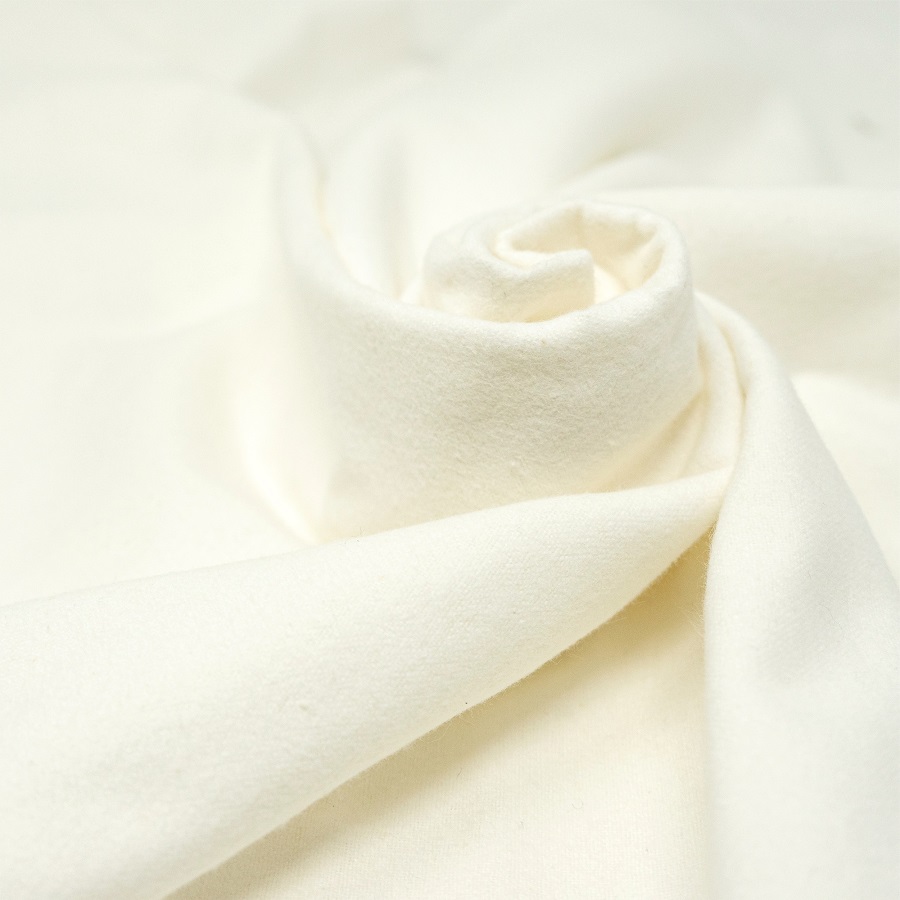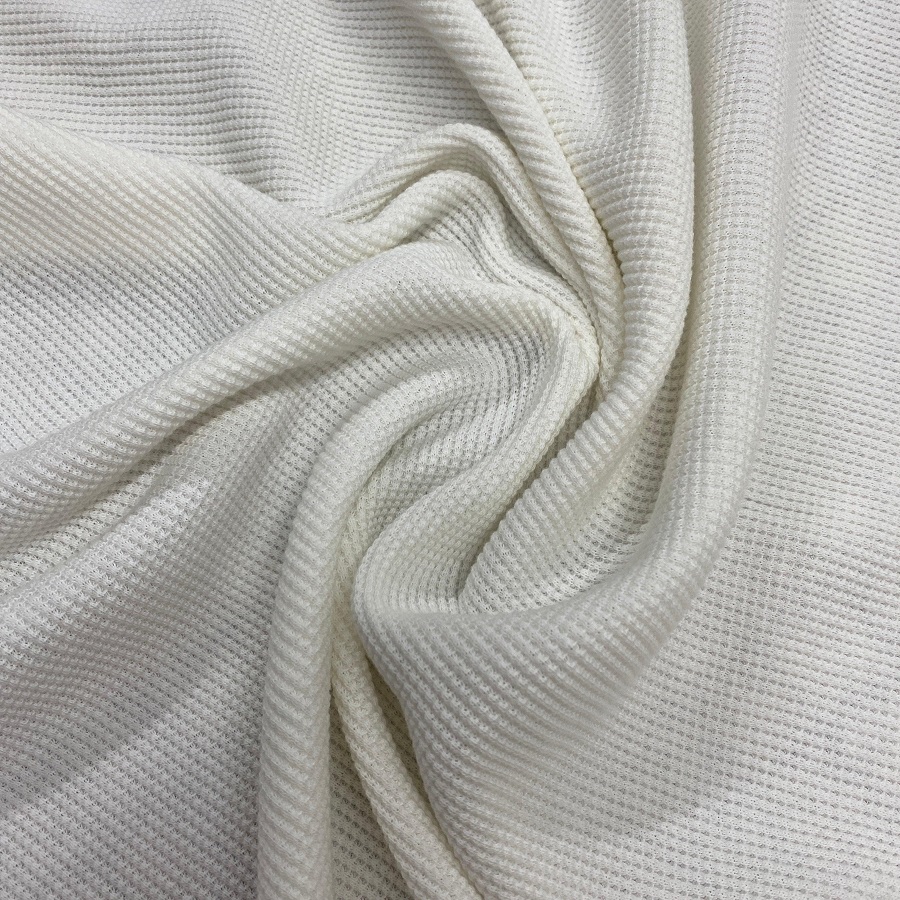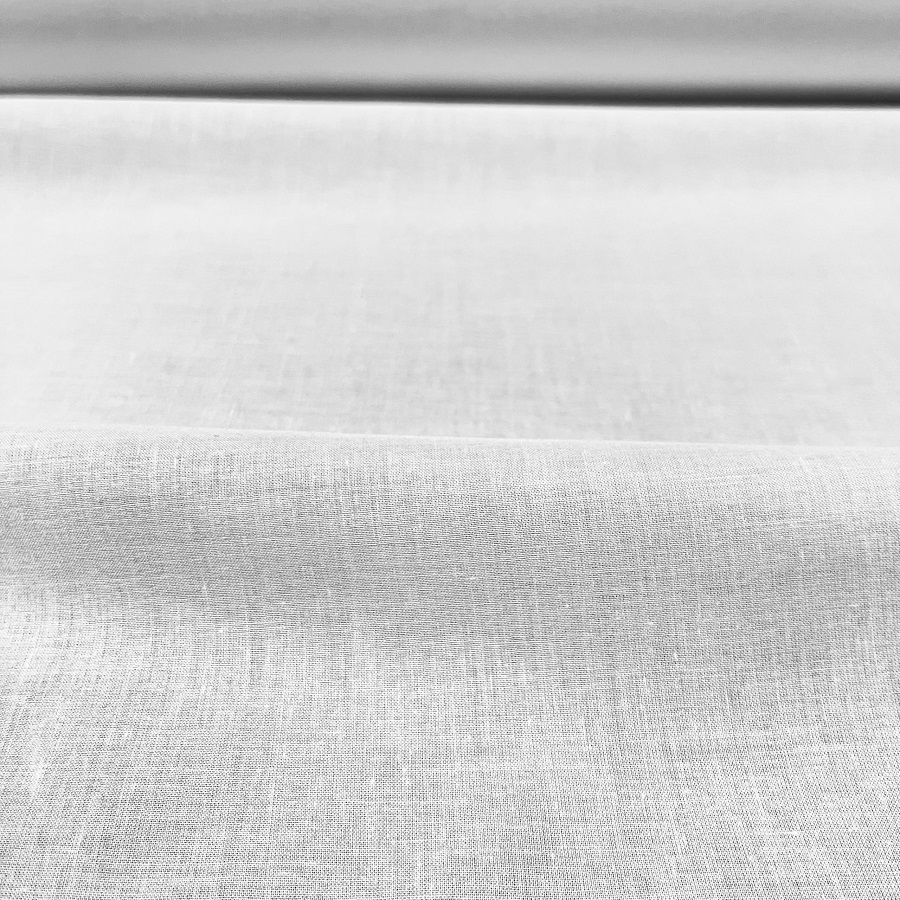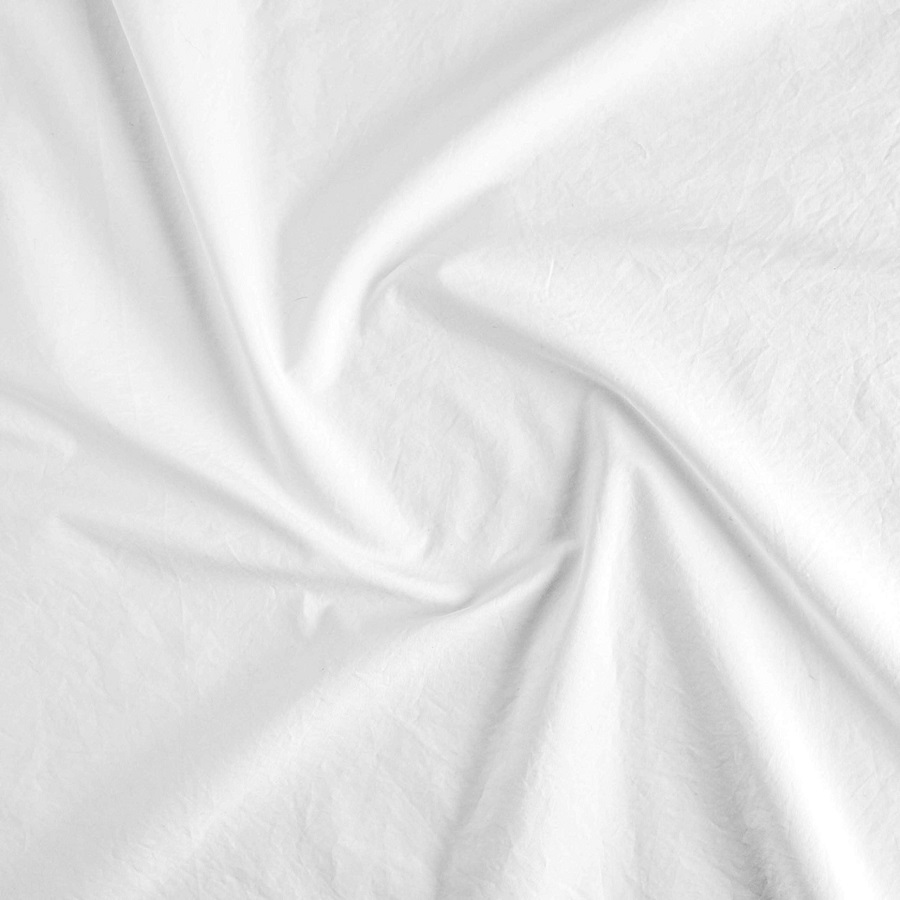Introduction to White Cotton Fabric
White cotton fabric is a staple in many wardrobes. It’s known for its comfort, breathability, and versatility. From T-shirts to bed linens, white cotton is everywhere. It’s also ideal for a wide range of climates. In hot weather, it keeps you cool, and it’s easy to layer under warmer clothing when it’s cold. This fabric is also a favorite for crafters and designers because it serves as a blank canvas for various dyeing and decorating techniques. Yet, for all its uses, white cotton fabric requires proper care to keep it looking its best. In this blog, we’ll share essential care and maintenance tips to ensure your white cotton items remain pristine for years to come. Armed with these tips, you’ll be able to tackle common issues like stains and discoloration that often plague white textiles.

The Benefits of Choosing White Cotton
Choosing white cotton fabric comes with numerous advantages. Here are some key benefits.
Comfort and Breathability
White cotton is highly regarded for its comfort. The natural fibers allow skin to breathe, making it perfect for hot climates. This breathability also means that sweat evaporates more easily, keeping you dry and comfortable.
Versatility in Fashion and Home Decor
The neutral color and texture of white cotton make it a favorite for fashion designers and home decorators. It pairs well with any color, offering endless styling possibilities. White cotton fabric can be the basis for a crisp, clean look in both clothing and interior design.
Easy Customization with Dyes and Prints
Crafters love white cotton because it’s like a blank slate. You can easily dye or print on it to create custom patterns, colors, and designs. This flexibility allows for unique creations that stand out.
Durability and Longevity
White cotton fabric is known for its strength and durability. With the right care, your white cotton items can last a very long time, giving you a good return on your investment.
Hypoallergenic Properties
For those with sensitive skin, white cotton is a safe choice. It’s naturally hypoallergenic, which means it’s less likely to cause allergic reactions.
Elevation in Style
White cotton has a timeless appeal that adds a touch of elegance to any outfit or decor. It’s a simple way to elevate your style without effort.
While white cotton fabric requires maintenance to keep it looking fresh, its benefits are well worth the effort. From ease of customization to its hypoallergenic nature, white cotton remains a top choice for a reason.

Proper Washing Techniques for White Cotton
To keep white cotton fabric looking bright and fresh, proper washing techniques are essential. Here are the steps and tips to follow:
Sort the Laundry
Always start by sorting your laundry. Wash white cotton with whites only, to avoid color transfer from other garments.
Use the Right Detergent
Choose a detergent that is effective at maintaining whites. Some detergents are specially formulated to care for white fabrics.
Check the Care Label
Before washing, look at the care label. It will tell you the correct water temperature and washing cycle for your white cotton items.
Pre-treat Stains
If there are any stains, treat them before washing. Apply a stain remover or a mixture of water and baking soda directly to the stain.
Avoid Overloading
Do not overload the washing machine. White cotton fabric needs room to move freely in the wash for thorough cleaning.
Select the Right Cycle
Use a gentle cycle for delicate white cotton items and a regular cycle for sturdier pieces to prevent damage.
Cold or Warm Water
Use cold water to prevent shrinkage and conserve energy. Warm water can be used for heavily soiled items but may cause slight fading over time.
Add Bleach Occasionally
If necessary, use non-chlorine bleach on occasion to brighten whites. Avoid using chlorine bleach as it can weaken fibers.
Following these techniques will ensure that your white cotton fabric maintains its pristine appearance for longer. Remember, the key is gentle care and attention to detail.
Drying and Ironing Recommendations
To keep your white cotton fabric in top condition, follow these drying and ironing tips.
Drying Tips
After washing your whites, give them the right drying treatment. Tumble drying on a low or medium heat setting works well for most white cotton items. Avoid high heat, as it can cause shrinkage and weaken fibers. For the best results, take the garments out before they are completely dry and let them finish air drying on a clean surface or hang them on a clothesline. This helps minimize wrinkles and saves energy.
Ironing Tips
Iron white cotton fabrics while they are still slightly damp. This makes it easier to smooth out any creases. Use the iron’s cotton setting, and always iron on a clean, flat surface. Begin with inside-out garments to preserve the fabric’s brightness. For extra protection, you can use a pressing cloth between the fabric and the iron.
By following these drying and ironing recommendations, your white cotton items will look crisp and fresh wear after wear.
Stain Removal Tips for White Cotton
White cotton fabric may be a magnet for stains, but don’t let that discourage you. With the right techniques, you can tackle and remove most stains easily. Here are some effective tips for stain removal that will help keep your white cotton looking spotless.
Act Fast
When a spill happens, act quickly. The sooner you handle the stain, the better your chances of removing it entirely.
Blot, Don’t Rub
Gently blot spills with a clean cloth. Rubbing can push the stain deeper into the fabric.
Natural Stain Removers
Before reaching for harsh chemicals, try natural options. Lemon juice or white vinegar can brighten whites. Apply, let sit for a while, then rinse.
Test First
Always test a stain remover on a small, hidden area first. This ensures it won’t damage the fabric.
Use the Sun
The sun can act as a natural bleaching agent. After washing, lay your garment in direct sunlight to help lighten any residual stains.
Regular Maintenance
Treat your white cotton items with a stain guard to prevent future stains. Regular maintenance can make life much easier.
Stubborn Stains
For tough stains, soak the fabric in oxygen-based bleach before washing. This type of bleach is safe for white cotton fabric.
By following these stain removal tips, you’ll extend the life and appearance of your white cotton items. Remember, patience and the right approach are your allies in keeping your whites white.

Storage Solutions for White Cotton Garments
Proper storage is key to keeping white cotton garments bright. Use these simple yet effective solutions.
Choose the Right Environment
Store white cotton in a cool, dry place. Avoid areas with high humidity or direct sunlight.
Use Protective Coverings
Cover garments with breathable fabric bags before placing them in the wardrobe. This guards against dust and yellowing.
Fold or Hang Correctly
Fold heavy white cotton items to prevent stretching. Hang delicate pieces on padded hangers to maintain shape.
Keep Away from Colored Items
Store whites separately from colored clothes to prevent color transfer, especially in humid conditions.
Avoid Plastic Containers
Do not store white cotton in plastic boxes. Plastic traps moisture, which can lead to yellowing of the fabric.
Use Acid-Free Tissue
For long-term storage, wrap white cotton in acid-free tissue. This helps to maintain the material’s integrity.
Regular Check-ups
Check stored garments regularly for any signs of damage or discoloration. Address problems immediately to prevent worsening.
Taking the time to store your white cotton correctly can prevent damage and extend the lifespan of your garments. Implement these tips, and your white cotton fabric will stay fresh and ready for their next use.
Mending and Repairing White Cotton Fabric
Even with the best care, white cotton fabric can sometimes suffer from wear and tear. Mending and repairing your garments can give them a new lease on life and is straightforward if you follow a few simple guidelines.
Address Issues Promptly
When you notice a tear or hole, repair it as soon as possible. This prevents the damage from getting worse.
Choose Suitable Thread
Use thread that matches the fabric’s weight and color. This ensures the repair blends in well.
Sew Tears Neatly
For small tears, use fine stitches that pull the fabric together without puckering.
Patching
For larger holes, apply a patch on the inside of the garment. Make sure it’s flat and secure.
Reinforce Areas
Areas that see a lot of wear, like elbows and knees, can be reinforced with extra stitching to prevent future tears.
Darning
Darning is a great method for repairing holes in cotton fabrics. Weave threads over the hole to create a new piece of fabric.
Use Professional Services
If the repair is complex, consider taking your garment to a professional tailor. They have the skills to fix it without a trace.
By attending to repairs immediately and using the right techniques, you can maintain the pristine appearance of your white cotton fabric. Mending is not only practical but also a sustainable choice, as it extends the lifespan of your clothes and reduces waste.
Environmental Considerations in Cotton Care
Caring for white cotton fabric extends beyond just laundry techniques and detergent choices. It’s also about being mindful of the environment. Here are some tips to make sure your cotton care routine is as eco-friendly as possible.
Use Eco-Friendly Detergents
Pick detergents that are biodegradable and plant-based. They reduce harmful chemicals in wastewater.
Cold Water Washing
Wash white cotton in cold water. This saves energy and prevents fabric damage.
Full Loads
Run full loads in the washing machine. This maximizes efficiency and saves water and electricity.
Natural Stain Removers
Use lemon juice or baking soda for stains. These natural substances are less harmful to the environment.
Line Drying
Dry your clothes on a line. It uses no energy and reduces your carbon footprint.
Reusable Fabric Bags
Store your whites in reusable cotton bags. This cuts down on the use of plastics.
Regular Maintenance
Care for white cotton regularly. It lasts longer, reducing waste and the need for new clothing.
By considering these environmental tips when caring for white cotton fabric, you’re helping to preserve not just your garments, but also our planet. Small steps can lead to significant changes in reducing our ecological impact.
